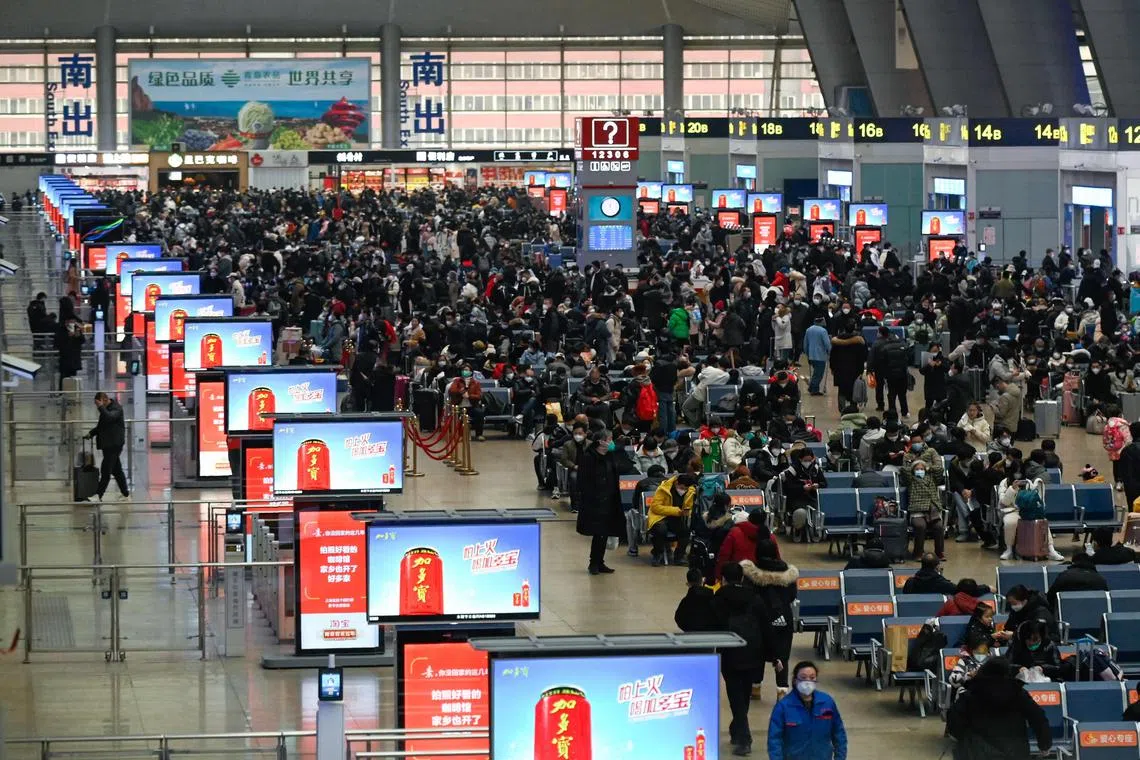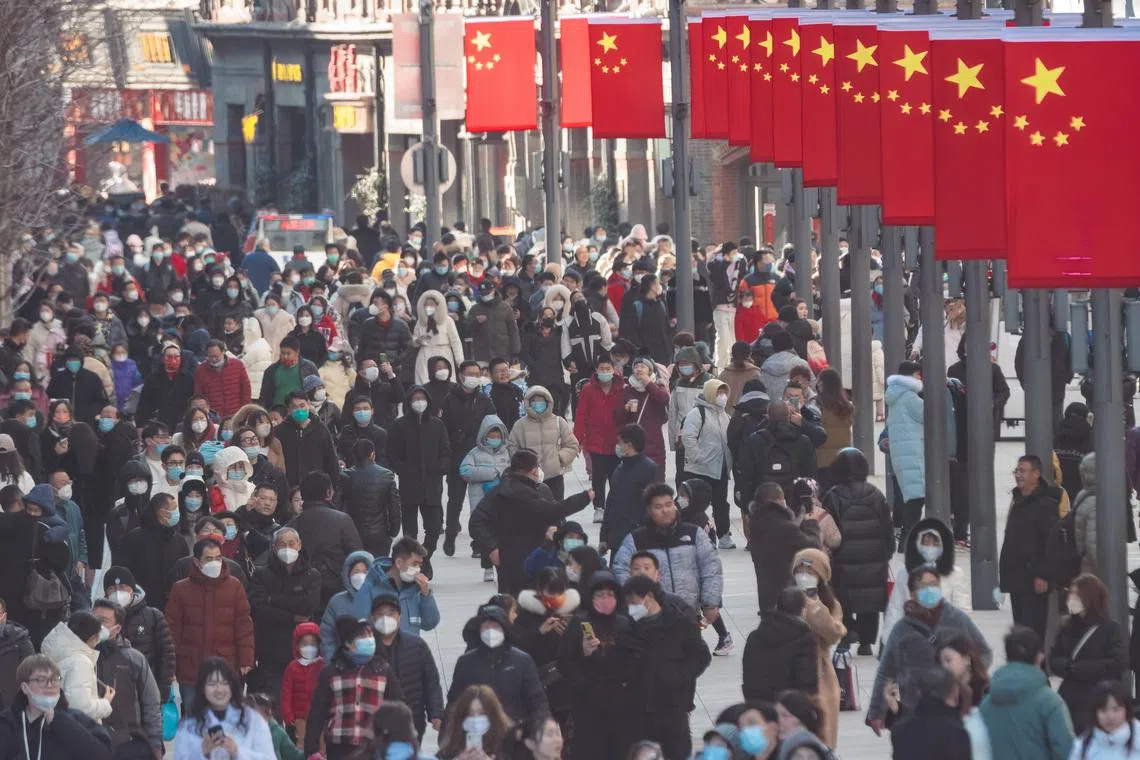No spike in China’s Covid-19 cases so far despite Chinese New Year travel rush
Sign up now: Get insights on Asia's fast-moving developments

Ahead of the holiday, experts had expected that the annual travel rush would lead to a surge in cases in rural China.
PHOTO: AFP
Follow topic:
BEIJING - For Henan native Zhang Long, Covid-19 is a thing of the past. The 37-year-old chiropractor was among the hundreds of millions of Chinese who returned to their home towns and villages during the recent Chinese New Year holiday.
“This New Year is the most special one in years. It has been three years since I went home, and this year felt like an especially emotional reunion,” he said.
Ahead of the holiday, experts had expected the annual travel rush would lead to a surge in virus cases in rural China.
However, just more than two weeks after the start of the holiday, those fears have not materialised.
The latest data from the Centre for Disease Control and Prevention (CDC) and anecdotal evidence show that the number of infections had peaked in mid-December as the virus spread rapidly, and has dipped significantly since then.
All of Mr Zhang’s family members – his parents, two sisters and their children – had been infected in mid-December, which meant they could celebrate China’s biggest holiday without fear of the virus that once kept people locked at home.
“It feels like suddenly the virus doesn’t exist any more... this year’s celebrations just felt more enjoyable,” said Mr Zhang, who had travelled from Beijing to his village near the city of Nanyang in Henan province.
He described scenes of people walking around maskless, celebrating the New Year at temple fairs and with fireworks.
The authorities estimate that 2.1 billion trips will be made during the 40-day travel rush, which ends on Feb 15.
Mr Wang Bin, an office manager in Beijing, said his parents had contracted the virus around Dec 20, and recovered after about four days.
“Going home this time, my main aim was to spend time with my parents, because I haven’t gone home in many years,” said Mr Wang, 31, who is from a village in Hebei, the province adjacent to the Chinese capital Beijing.
The experiences of Mr Zhang and Mr Wang, and many others, underscore how rapidly the virus had spread in both urban and rural areas.
China abruptly abandoned its long held zero-Covid policy

China abruptly abandoned its long held zero-Covid policy on Dec 7, bringing to an end the strategy of mass testing and lockdowns it employed to keep the virus at bay.
PHOTO: EPA-EFE
Covid-19 infections across the country peaked at 6.94 million daily cases on Dec 22, with the number plunging to 30,000 on Jan 30, according to data from the CDC released on Feb 1.
The number of people hospitalised for Covid-19 also peaked at 1.625 million
Professor Jin Dongyan, a virologist from the University of Hong Kong, told The Straits Times that the main reason why there has not been a spike in cases following the holidays is because the virus was already spreading widely before Beijing’s about-turn on zero-Covid.
“Before China opened up, there was already widespread transmission, particularly in cities. That’s why when measures were relaxed all of a sudden, there were so many cases,” said Prof Jin.
Writing on his Weibo account on Jan 21, the eve of Chinese New Year, the CDC’s chief epidemiologist Wu Zunyou said about 80 per cent of Chinese had already been infected.
“In the short term, for example in the next two or three months, the probability of a large-scale rebound of the pandemic or a second wave of cases across the country is very small,” he said.
Prof Jin pointed out that because the virus had ripped through the population within a short span of time, China had reached “herd immunity”.
Any future wave of infections will likely take place only after about six months, as immunity wanes, he said.
“If any future wave happens, it is going to be a lot smaller,” Prof Jin added.

